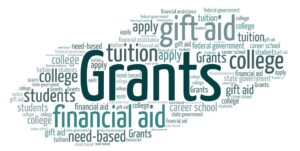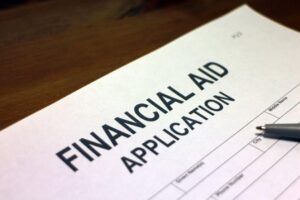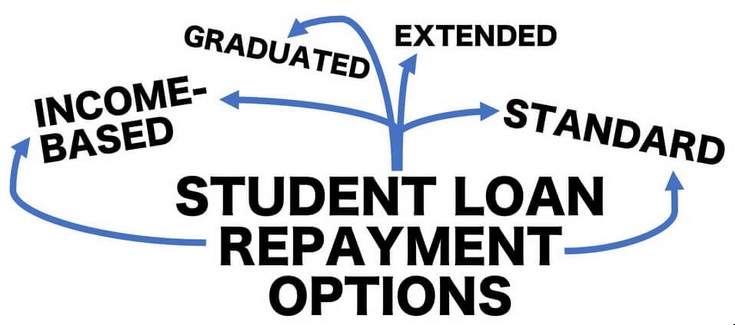
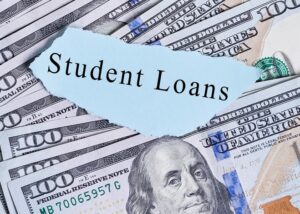 Not all of us can have excellent credit. Whether you’ve made a few mistakes or you just don’t have an established credit record, this can make the application process for student loans a lot more complicated. However, there are steps you can take to help your loan get approved, even if you do have bad credit.
Not all of us can have excellent credit. Whether you’ve made a few mistakes or you just don’t have an established credit record, this can make the application process for student loans a lot more complicated. However, there are steps you can take to help your loan get approved, even if you do have bad credit.
When comparing student loans for bad credit or no credit, it’s important to consider the terms and conditions of each loan. Some lenders may offer lower interest rates and more favorable repayment plans, but you need to do your due diligence to make sure these are legitimate offers. It’s also a good idea to compare any fees associated with student loans, such as origination fees and prepayment penalties. Taking the time to compare student loan options can save you money in the long run and ensure that you find a loan best suited to your situation.
In addition to researching loan terms, it’s important to be aware of what credit score is needed for student loans. Generally, student loan lenders will require a score of at least 600 in order to qualify for student loans for bad credit or no credit. If your score isn’t quite there yet, there are ways to build credit and improve your chances of getting approved for student loans.
Types of Loans and Grants for Students with Bad Credit
Below, we will take a look at some of the popular options for students that have less-than-stellar credit, or not credit established yet in order to secure a college loan.
Federal Student Loans
These are loans provided by the federal government and are typically the best option for students with bad credit. They often have lower interest rates and more flexible repayment terms than private loans. Federal student loans can be a great option for students with bad credit or no credit. Subsidized student loans are available to undergraduate students, and unsubsidized student loans are available to both undergraduate and graduate students. Furthermore, student loan forgiveness programs may also be available depending on your situation. Be sure to research all of your student loan options and compare different lenders to make sure you get the best terms and rates for your student loan. With careful consideration, Federal student loans can be a great way to finance your education without breaking the bank. Some of the Federal loans that may be available to you are:
- Direct Subsidized Loans
- Direct Unsubsidized Loans
- Direct PLUS Loans
- Perkins Loans
Private Student Loans
Private student loans are another option for students with bad credit or no credit. Credit unions, online lenders, and other private student loan providers can offer student loans with competitive interest rates and repayment plans. However, it’s important to do your research when considering a private student loan; some may have stricter requirements than federal student loans, such as higher credit score requirements. Be sure to thoroughly review any student loan offers and compare different lenders to ensure that you get the best student loan terms for your situation. With some due diligence, private student loans can be a great resource for financing your education. The types of private student loans vary depending on the lender. Some of the most common private student loan providers are:
- Sallie Mae
- Citizens Bank
- College Ave
- Additionally, many credit unions have student loan programs that may be worth looking into.
Grants
These are funds that do not need to be repaid and are typically awarded based on financial need. Grants may be provided by the federal government, state governments, colleges, or other organizations. A few of the types of grants available to students for college are:
- Pell Grant
- SEOG (Supplemental Educational Opportunity Grant)
- TEACH Grant
- Iraq and Afghanistan Service Grant
Scholarships
These are funds that do not need to be repaid and are typically awarded based on merit (such as academic or athletic achievements) or other criteria. Scholarships may be provided by the federal government, state governments, colleges, or other organizations. There are a variety of scholarships available to students with bad credit or no credit. Scholarships can be need-based, merit-based, or based on other criteria such as student achievement, ethnicity, gender identity, and/or sexual orientation. Additionally, there are many student loan forgiveness programs that may be available depending on your situation. A few of the types of scholarships to look into for bad credit include:
- Need-based Scholarships
- Merit-based Scholarships
- Student Achievement Scholarships
- Ethnicity and Identity Scholarships
- Student Loan Forgiveness Programs
Work-study Programs
These are programs that provide students with the opportunity to work part-time while they are enrolled in school in order to earn money to help pay for their education. Work-study programs may be funded by the federal government, state governments, or colleges.
Stafford Loans
Stafford Loans are typically the first choice for individuals in this situation. They offer two different types of loans, subsidized and unsubsidized. A subsidized loans is not awarded based on any credit score. Instead, they will look at your income and your parent’s income to determine eligibility. This should be the first choice for a student that has less than perfect credit. Keep in mind that the government pays the accruing interest on this type of loan, which will lower the amount you’ll have to pay back in the future.
The unsubsidized version will be determined according to your personal credit history, but it is one of the easiest loans to qualify for. Even if you do have bad credit, it’s worth the time to apply for this particular loan. The amounts provided are usually smaller, but in this situation, something is better than nothing.
Federal Perkins Loans
The next step is the Federal Perkins loan. Once again, this is a loan that is not based on any credit history. They will usually only provide you with up to $4,000 per year, but in some cases, they may go up to $20,000, based on your particular situation. Even graduate students can take advantage of this type of loan.
Federal Perkins Loans are student loans provided by the government to undergraduate and graduate students in financial need. These student loans offer lower interest rates and flexible repayment terms, making them an attractive option for many students. Additionally, these student loans may be eligible for loan forgiveness if certain criteria are met. For more information on Federal Perkins Loans and how to apply for them, please see the following links:
- Federal Perkins Loan Information
- How to Apply for a Federal Perkins Loan
Other Options for Student Loans with Bad Credit
There are other loans that are available to you, based on the major that you will be taking. For example, there are primary care loans that offer assistance to those who plan on becoming a doctor. These loans are typically not awarded based on your credit history, but you will need to fulfill certain requirements to be eligible and to keep your eligibility once you have been approved.
Having poor credit doesn’t have to mean that you miss out on a college education. You just need to explore the available options and try to find loans that will look solely on your own personal merit and not your past credit history. They are available, particularly from the government, and the terms are typically quite good, when compared to other bad credit loans.
These Loan Options for Students with Bad Credit should also be Explored:
| Loan Options | Description | Source |
|---|---|---|
| Borrower’s Certificate | A certificate provided by the U.S. Department of Education that enables students with adverse credit to qualify for federal student loans by getting someone to cosign for them. | Federal Student Aid |
| Income Share Agreements | A contract where students agree to pay back a percentage of future income over a set number of years in exchange for funding. Not based on credit scores. | Investopedia |
| PLUS Loans | Federal loans parents can take out on behalf of their undergraduate children regardless of credit. Require credit check but some lenders work with poor credit. | Federal Student Aid |
| State Aid Programs | Many states offer grants, scholarships, or low-interest loan programs based on residency and financial need, not credit scores. | CareerOneStop |
| Institutional Aid | Colleges and universities may offer aid programs and private loans regardless of credit, especially if the student has shown academic achievement. | Federal Student Aid |
| Credit Counseling | Working with non-profit credit counseling agencies can help improve credit over time and demonstrate responsibility. | Consumer Financial Protection Bureau |
| Cosigners | Having a cosigner with good credit can help students qualify for private loans even with bad credit. | NerdWallet |
| Appeal Process | If denied federal aid, students can appeal based on special circumstances. Documentation required but can override credit issues. | Federal Student Aid |
Here are 25 additional resources on qualifying for student loans with bad credit:
- Student Loans for Bad Credit – U.S. Department of Education
- Bad Credit Student Loans – Forbes Advisor
- Student Loans Without a Cosigner – Credible
- Improving Your Credit to Qualify for Student Loans – Experian
- Scholarships and Grants for Students with Low income or Bad Credit
- Student Loans for Bad Credit – LendKey
- Bad Credit Student Loans – Nerdwallet
- Student Loans for Bad Credit Borrowers – SuperMoney
- Student Loans for Bad Credit – Excelle
- Student Loans for Bad Credit
- Student Loans for Bad Credit – FutureFuel
Additional Tips to Improve Student Credit for Loan Approvals:
- Start building credit early – as a high school student if possible – to establish history.
- Appeal any errors on your credit report and try to improve your score. Even small boosts can help.
- Compare lenders and look for ones catering to borrowers with poor credit. Rates may be higher but you can still get approved.
- Make interest payments on unsubsidized loans while in school to keep balances from growing.
- Consider a community college for the first 1-2 years to minimize borrowing needs. Then transfer to a 4-year school.
- Look for on-campus jobs or paid internships that provide experience and can help cover expenses.
- See if you qualify for any military programs that repay loans in exchange for service.
- Some employers may offer tuition reimbursement if you work for them while in school.
Frequently Asked Questions
-
Can you get a student loan with a 500 credit score?
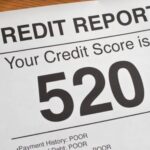
It is possible to get a student loan with a 500 credit score, but it may be more difficult and require going through a lender who specializes in student loans for borrowers with bad credit. In general, having a low credit score can indicate that you are less likely to follow through on making payments or repaying the loan in full. Still, there are lenders out there who understand that student loans function differently from other types of borrowing and have different criteria for student loan applicants. Despite a less-than-perfect credit score, borrowers have access to federal and private student loan options. Additionally, by exploring alternatives like scholarships or work study programs, you can minimize the amount of loans needed for your educational journey.
-
Do direct, subsidized student loans work for students with a bad credit score?
If you are an undergraduate student looking for student loan assistance, a Direct Subsidized Loan may be the perfect fit for you. Obtaining this type of loan does not require a credit check, meaning student with bad credit can still qualify. As an added bonus, while enrolled in college and during the grace period upon graduation, the government pays all of the interest on the loan! Seeing as tuition continues to rise each year, Direct Subsidized Loans offer students in need a broad helping hand.
-
Does Sallie Mae give loans with bad credit?

Sallie Mae offers student loans to students with bad credit, as well as student loan refinancing options for those who already have student debt. However, applicants will need to meet certain criteria in order to be approved. Sallie Mae also offers student loan consolidation options that can help make student debt more manageable. For more information on student loans from Sallie Mae and how to apply, please see the following link: Sallie Mae Student Loans
-
How can you get a private student loan with poor credit?

Private student loans are an option for students with bad credit, although there are some factors to consider before taking out a loan. First, you should research the different student loan options available and choose one that best fits your needs. Next, you will need to provide proof of income and fill out an application. Lastly, the lender may require a co-signer or for you to have an established payment history before approving the loan.
